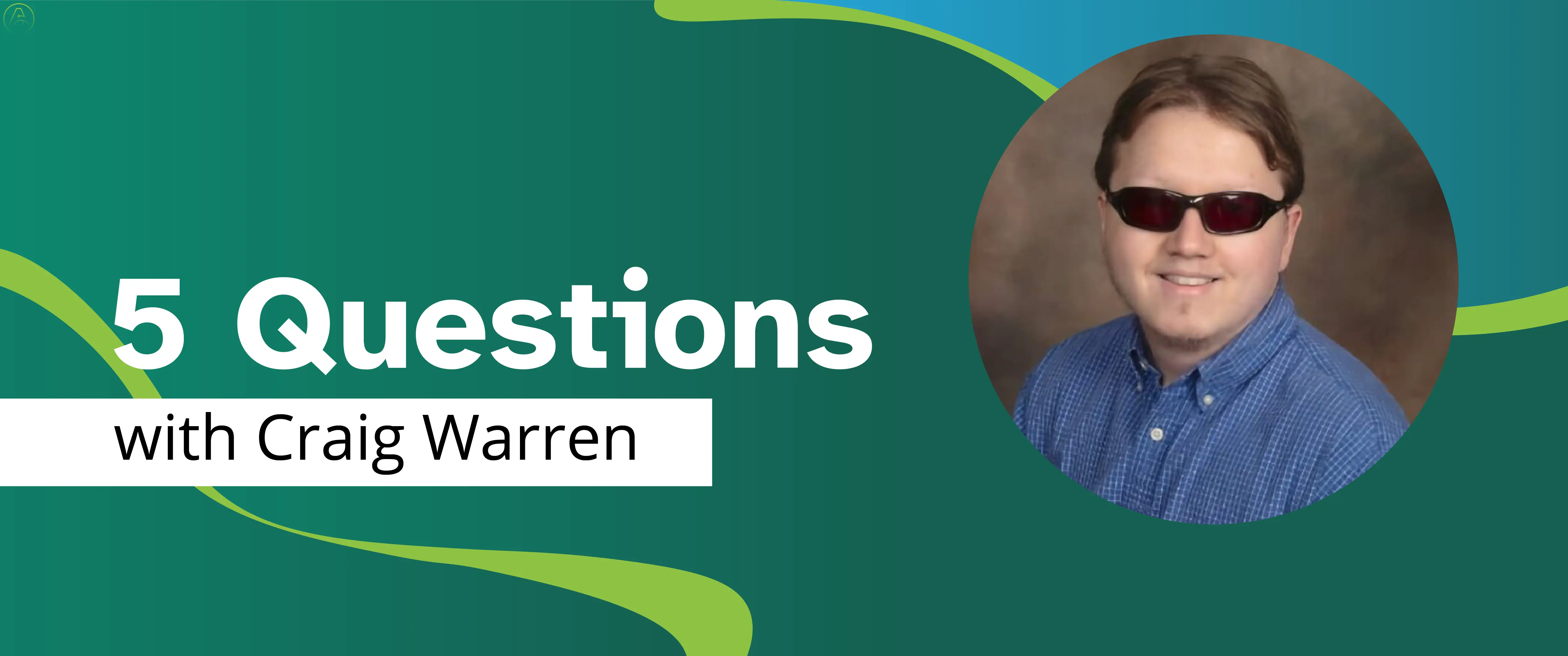Over 2 million people in the United States have a neurological disorder called aphasia (or dysphasia), with 180,000 new cases per year affecting 1 in every 272 Americans.
High-profile cases of aphasia in the news, like Gabby Giffords, Emilia Clarke, and Bruce Willis, brought attention to the condition – as of 2022, 67.8% of Americans have heard of aphasia, although only 40% know what it is.
Despite aphasia and dysphasia’s prevalence in the United States, there are still misconceptions about the conditions. This article will answer your biggest questions about aphasia and dysphasia, including:
What is aphasia?
What is dysphasia?
What is the difference between aphasia and dysphasia?
What causes aphasia?
What are the different types of aphasia and how do they affect communication?
What are the early signs and symptoms of aphasia and dysphasia?
How is aphasia related to dementia and Alzheimer’s?
How is aphasia diagnosed?
What are the treatment options for aphasia and dysphasia?
Where can I find help for aphasia, dysphasia, and related conditions?
What is aphasia?
Aphasia is a neurological disorder that is commonly linked to strokes. It is a language disorder or language processing disorder that makes it difficult to both communicate and understand verbal and written language.
People with aphasia may struggle to:
Put the correct words together in a sentence.
Understand what others say to them.
Read.
Write.
What is dysphasia?
Dysphasia is a similar impairment in language comprehension resulting from brain disease or damage. Historically, dysphasia applied to cases where people lost their ability to understand other people, but not their ability to speak.
In recent years, however, the diagnosis “dysphasia” has largely been retired due to the word’s similarity with other medical conditions affecting communication, the mouth, and speech.
These three similar-sounding conditions are all unique diagnoses:
Dysphasia refers to brain damage that causes a communication disorder.
Dysarthria is a motor speech disorder that results in slurred or obstructed speech due to weakened muscles in the face and mouth.
Dysphagia, pronounced very similarly to dysphasia, is a swallowing disorder that can be linked to neurological, muscular, or cognitive disabilities.
The term dysphasia has widely been retired to avoid confusion in these terms.
What is the difference between aphasia and dysphasia?
Historically, dysphasia was considered a milder or less severe form of aphasia. Doctors used this diagnosis to describe language difficulties that only affected comprehension, rather than speech.
However, because of confusion with other conditions, dysphasia is now considered part of an aphasia diagnosis, and most doctors use the term “aphasia” to describe both conditions.
What causes aphasia?
Aphasia is caused by damage to the areas of the brain responsible for language production and comprehension.
Stroke is the most common cause of aphasia. About 25-40% of stroke survivors experience aphasia.
Other aphasia causes include:
Brain tumor
Epilepsy or seizures
Head injury
Infection
Neurodegenerative diseases, such as Alzheimer’s and Parkinson’s
Transient ischemic attacks (TIA), also known as “mini-strokes”
What are the different types of aphasia and how do they affect communication?
The location, severity, and speed of communication loss define the different types of aphasia.
Aphasia types include:
Anomic aphasia, a mild form of aphasia. Someone with anomic aphasia may have difficulty finding the right word to name an object. The person’s speech may be fluent, but they substitute meaningless words like “thing” when they cannot recall the correct term.
Broca’s aphasia occurs when the Broca area of the brain’s frontal lobe is damaged. Someone with Broca’s aphasia may be able to understand what others are saying, but their brain cannot control the fluency of their own speech.
Primary progressive aphasia (PPA) is aphasia where communication becomes progressively worse. PPA is caused by neurodegenerative diseases, such as Alzheimer’s disease.
Wernicke’s aphasia is also called fluent or receptive aphasia. Wernicke’s aphasia occurs when the Wernicke area of the brain in the temporal lobe is damaged. Someone with Wernicke’s aphasia can speak, but others may not understand what the person is saying.
Less common types of aphasia include:
Conduction aphasia, which affects fluency but not understanding.
Mixed transcortical aphasia, which is similar to global aphasia, but the person can repeat words that are spoken to them.
Transcortical motor aphasia, which is similar to Broca's aphasia but usually not as severe.
Transcortical sensory aphasia, which is similar to Wernicke's aphasia but usually not as severe.
What are the early signs and symptoms of aphasia and dysphasia?
Aphasia symptoms can be expressive, receptive, or global, depending on the type of aphasia a person has.
Broca’s aphasia is sometimes called expressive aphasia, expressive dysphasia, or an acquired expressive language disorder because early symptoms include eliminating words like "and" and "the." Other early symptoms of Broca's aphasia include right-sided weakness or paralysis of the arm and leg.
Wernicke aphasia is sometimes called receptive aphasia or an acquired receptive language disorder because the person’s communication becomes confusing. Sentences use strange or incorrect grammar with unnecessary words or even made-up words. In addition, people with receptive aphasia usually have difficulty understanding what other people are saying.
Global aphasia is the most severe form of aphasia. Someone with global aphasia speaks few recognizable words and understands little or no spoken language. A person with global aphasia cannot read or write.
How are aphasia, dementia, and Alzheimer’s related?
Alzheimer’s disease is a progressive dementia that impacts memory, judgment, and executive functioning. Someone with Alzheimer’s disease gradually becomes forgetful, emotionally unpredictable, and confused, often with major changes to their personality and an increase in dangerous or risky behavior.
Alzheimer’s disease can cause aphasia, but aphasia does not cause Alzheimer’s. Someone with Alzheimer’s-related aphasia might:
Struggle to find the right word to use.
Forget the names of people or objects.
Hesitate when they speak.
Write down the wrong words, or struggle to write entirely.
Have difficulty understanding spoken or written words.
To learn more about Alzheimer’s disease, see our collection of resources for people with Alzheimer’s and their loved ones.
One form of aphasia caused by Alzheimer’s is primary progressive aphasia, a neurodegenerative disease characterized by worsening deterioration of brain tissue. Although the early symptoms of PPA are communication-related, dementia symptoms like memory loss and personality changes often occur later.
How is aphasia diagnosed?
The aphasia diagnosis process may include the following tests:
Brain imaging tests to determine the location and extent of brain injury.
Sensory and nerve function studies to rule out other conditions.
Cognitive assessment tests to evaluate memory loss and cognitive impairments.
Comprehensive communication tests to determine a person’s ability to speak, understand, read, write, have conversations, and express ideas fluently.
What are the treatment options for aphasia and dysphasia?
Aphasia treatment depends on the specifics of the diagnosis. If aphasia is related to a treatable brain injury or illness, aphasia symptoms may go away with treatment of the underlying cause. In cases where aphasia is progressive, such as Alzheimer’s-related aphasia, treatment focuses on maintaining a person’s communication skills for as long as possible.
A speech-language pathologist (SLP) can work with with people with aphasia to create strategies and exercises to help strengthen their communication skills.
Where can I find help for aphasia, dysphasia, and related conditions?
Ability Central has a [searchable database]() of non-profits that can connect you with local resources that can help with diagnosis and treatment.
To learn about related conditions, see:
Parkinson’s disease
Transient ischemic attacks (TIA)



